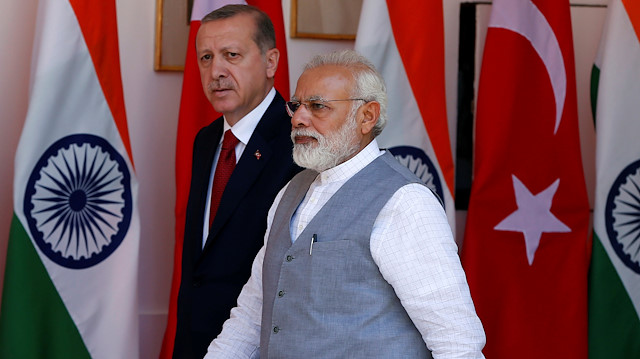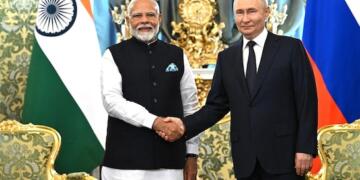Turkish President Recep Tayyip Erdogan, a controversial leader has yet again shown his neo-Caliphate aspirations during his speech at the UN General Assembly in New York.
During his speech, he positioned himself as the “messiah” of the Muslim populations across the world. In his speech, he attacked several nations in a bid to project himself as the protector of Muslims across the world. He took up several issues including the Palestine issue and also referred to the Rohingya immigrant issue, both issues in which the harbouring ambitions of a neo-Caliphate hold key interest.
Erdogan’s comments don’t come as much of a surprise. The controversial leader has been criticised for his commitment to global jihad in the past.
As per a New York Post report, the MIT, Turkey’s intelligence agency, has been providing resources and material assistance to the ISIS since 2012, under the Turkish President’s directions.
Two Turkish Intelligence officials had been captured by Kurd guerilla fighters in Northern Iraq in 2017. The officials had revealed how the Turkish government had assisted ISIS and other violent jihadi groups operating in Syria and Iraq.
The wannabe Khalifa has also been a staunch supporter of the Muslim Brotherhood in Egypt. His political standpoint, therefore, reflects his sheer desperation and his ambitions of emerging as the Supreme Leader of Muslims at a global level.
It is Erdogan’s neo-Caliphate ambitions that also drive his disconcerting stance on Kashmir that he displayed during the recent UN General Assembly session in New York. During his speech, he raised the Kashmir issue in support of Pakistan’s attempts to internationalise the issue.
It must be noted that when the entire community of nations has come out agreeing that abrogation of Article 370 is India’s internal issue. During his speech, Erdogan said, “Despite the resolutions adopted, Kashmir is still besieged and eight million people are stuck in Kashmir.” He also went on to criticise the international community for not paying sufficient attention to the issue of Kashmir.
He added, “In order for the Kashmiri people to look at a safe future together with their Pakistani and Indian neighbours, it is imperative to solve the problem through dialogue and on the basis of justice and equity, but not through collision.”
It must be noted that Turkey is an all-weather ally of Pakistan. The two countries had signed a Treaty of Eternal friendship way back in the 1950s. The Treaty was largely based on the Islamic identity of the two countries and a striking ideological resemblance. Both countries are majority-Sunni Muslim communities and both the countries look at the Islamic identity as central to national politics.
It is this long shared sentiment which spurred Turkey into a sudden diplomatic attack on the issue of Kashmir at the multilateral forum.
However, this diplomatic offensive came as a sudden and unwarranted attack on India, especially at a time when Pakistan’s bizarre accusations against India concerning Kashmir have not resonated with the international community. It is, for this reason, it was questioned as to why India did not deal with Turkey in the same coin.
Now, as per recent developments, it seems that India has resorted to quiet Indian diplomacy as far as Turkey’s objectionable stance on Kashmir is concerned.
In line with this approach, PM Modi met the Armenia PM Nikol Pashinyan and Cyprus President Nicos Anastasiades on the sidelines of the 74th UN General Assembly.
By holding top-level meetings with Cyprus and Armenia, countries which have been wronged by Turkey in the past, India has sent across a strong message to the Turkish President, Erdogan. Armenia shares a long history of strained relations with Turkey and Armenians still accuse Turkey of having committed an inhuman massacre of the Armenian population in the early twentieth century. Turkey is also accused of having played down the mass killings at that time.
Cyprus, on the other hand, was violently partitioned by Turkey in 1974, after an invasion, which ultimately led to the Turkish occupation of a major part of Cyprus by the end of the invasion. More recently, Turkey has been trying to occupy parts of what is left of Cyprus and has been at odds with Greece for this reason.
This ought to be of interest to Mr Erdogan: India holds leadership-level meetings with Armenia and Cyprus. pic.twitter.com/R7dggNOi74
— Dhruva Jaishankar · ध्रुव जयशंकर (@d_jaishankar) September 27, 2019
Now, with PM Modi holding one on one bilateral meetings with the Cyprus President and Armenia PM, India has sent a soft signal to Turkey not to meddle with India’s internal affairs and to respect India’s territorial sovereignty.
India has started with quiet diplomacy but it could easily translate into a more aggressive one if Turkey doesn’t get rid of its offensive and hypocritical behavior displayed during the UN General Assembly session.




























